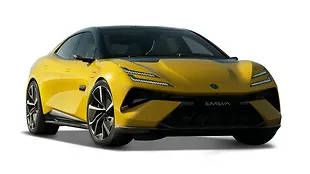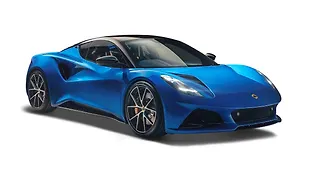What is it?
Why will I avoid the S-Cross?
It still retains an overall crossover stance, some interior components borrowed from cheaper Maruti models and the engine sounds unrefined at the limit

Maruti Suzuki has decided to refresh its S-Cross and give it a second lease of life. Unfortunately, the brand wasn’t able to capitalise on the SUV/crossover trend with the S-Cross in its first run, simply due to its ‘large hatchback’ looks. Which is essentially why people turned to the Brezza, Creta, Duster, Ecosport or even the Terrano for the more butch SUV/crossover stance. To counter this, Maruti has now revised the S-Cross’ looks, upgraded the feature-list and plans to only offer the 1.3-litre diesel engine (dropped pricier 1.6-litre diesel engine).

From the front, the refreshed S-Cross gets a large chrome upright grille with prominent vertical slats, and an aggressive lower bumper design that houses a larger air dam. Other updates include the reshaped LED projector head lamps with DRLs, the new sculpted bonnet and the new two-tone machined alloy wheels with wider 215/60 R16 tyres (earlier 205/60 R16). As for the rear, Maruti has only revised the tail lamp internals by giving it some LED treatment. On the whole, the outcome of these updates does make the S-Cross look more butch, especially from the front end.
How is it on the inside?

The interiors of the S-Cross strike a familiar chord with the outgoing version. This is a good thing since it was a well-finished cabin that looked elegant anyway. The noticeable updates include a door armrest that’s now wrapped in leather, a smart-hybrid auto start/stop cancel switch and the touchscreen infotainment system which is now compatible with Android Auto (earlier only Apple CarPlay). The rest is the same. So, you get adequate stowage spaces on the lower centre console, inside the drivers central arm rest and the front door pads too.

Just like earlier, the overall fit and finish is good and there are lots of soft touch points on the upper dash and door pads. That said, we noticed some inconsistency such as the variation of plastic grain on the soft touch dashboard versus the hard plastic sections. Let’s talk about the seats now. Slide on to those large front seats with firm cushioning and you will appreciate lots of legroom, the high seating positon with great visibility, good lateral and thigh support, and adequate headroom.

Meanwhile, the large rear bench can comfortably seat three passengers, thanks to the superior shoulder room, ample legroom and adequate thigh support. However, headroom for tall passengers will be tight and there’s no rear ac vent here either. On the boot front, the S-Cross continues to offer 353-litres of boot space through a well-shaped enclosure that can easily swallow two large suitcases and some soft bags. Plus, the 60:40 split folding seats with the almost flat folding feature means the boot space can expand up to 810-litres.

Features that are unique on the refreshed S-Cross are the DRLs with LED projector head lights, two-tone machined alloy wheels, LED tail lamps, door armrest in leather, a six-speaker touchscreen infotainment system with Android Auto compatibility (earlier only Apple CarPlay), smart hybrid auto start/stop cancel switch, and a new paint shade called ‘Nexa Blue’. You also get features like keyless entry and go, auto head lights, sat-nav, climate control, auto wipers, dual front airbags, and ABS with EBD.
How does it drive?

Under the hood of the Maruti S-Cross is the same 1.3-litre four-cylinder Multijet motor that’s powers the Ciaz. It puts out a respectable 89bhp and 200Nm of torque, and is coupled to a five-speed manual transmission. However, Maruti has now incorporated ‘Smart Hybrid’ technology which features idle start-stop system and brake energy regeneration (to assist engine power on acceleration).
Although Maruti does not claim it, the S-Cross should turn out to be more efficient than earlier. But what the company does claim is that this system brings down carbon dioxide emissions to just 105.5gm/km. The characteristics of this motor remain the same and there is still some amount of diesel clatter that settles down on the go. Off the mark, there is some lag till the boost kicks in at around 2000rpm. Post this, there’s a decent mid-range that tapers off at about 5000rpm before it hits the 5500rpm redline. But by that time this engine sounds unrefined and it seems pointless to rev it all the way.

Despite the power delivery not being aggressive, performance is sufficient and you won’t be left wanting for more, provided you’re slotted in the correct gear and hovering north of 2000rpm. This brings us to the five-speed gearbox. It has a well-defined gate with reasonably short throws and a light and progressive clutch. If we had to be picky, the only downside would be the slight rubbery feel to it.
Let’s move on to the ride quality. The suspension set-up on the S-Cross is a tad firm, and this translates into some movement within the cabin at slow speeds when the going gets rough. However, as the momentum picks up, the ride quality becomes flatter since the bump absorption by the well-judged dampers gets markedly better. That said, sharp bumps filter into the cabin with a thud, but it never feels harsh enough to make the occupants uncomfortable.

Furthermore, the refreshed S-Cross feels more sure-footed thanks to the wider 215 profile tyres that offer better grip. Plus, with the firm ride, the car continues to be quite stable on the highway with the body roll well-contained around bends. That said, the S-Cross’ steering isn’t quick, but is progressive enough with the right amount of feedback which allows you to place the car exactly where you want.
Should I buy one?

What doesn’t work for the facelifted Maruti S-Cross is the crossover looks that may not warm up to everyone’s liking. We also noticed that the plastic finish could have been better, and parts like the power window switches, the door mirror adjuster and other controls have been borrowed from other cheaper Marutis. Then there’s the 1.3-litre diesel motor that sounds unrefined at the limit, and the ride which is a bit firm at slow speeds.
However, what does go in favour of the S-Cross is the redesigned front end which gives it some much needed character. It also gets a spacious cabin with quality interiors and comfortable seats. Likewise, the diesel engine has decent grunt, ride quality at high speeds is flat, grip is better than before and the handling is predictable. Lastly, with this brand, you are assured of a hassle-free ownership experience. Maruti is expected to release the prices of the new S-Cross in the coming days. Based on what we have seen of the product, there’s no doubt that the versatility and the practical nature of this vehicle appeals more to the head. But that said, the new styling is sure to tug at a few hearts too.
Where does it fit in?

The Maruti Suzuki’s new S-Cross will locks horns with other segment SUV/crossovers like the Ford Ecosport, stable mate Vitara Brezza, Renault Duster, Hyundai Creta and the Nissan Terrano.
Pictures: Ninad Ambre
Maruti Suzuki S-Cross variants explained
New Maruti Suzuki S-Cross revealed in pictures
Spec Comparison: Maruti Suzuki S-Cross Vs Renault Duster

![Maruti Suzuki S-Cross [2017-2020] Exterior Maruti Suzuki S-Cross [2017-2020] Exterior](https://imgd.aeplcdn.com/642x361/cw/ec/31217/Maruti-Suzuki-SCross-Facelift-Exterior-108672.jpg?v=201711021421&wm=1&q=80)
![Maruti Suzuki S-Cross [2017-2020] Exterior Maruti Suzuki S-Cross [2017-2020] Exterior](https://imgd.aeplcdn.com/642x361/cw/ec/31217/Maruti-Suzuki-SCross-Facelift-Exterior-108682.jpg?v=201711021421&wm=1&q=80)
![Maruti Suzuki S-Cross [2017-2020] Exterior Maruti Suzuki S-Cross [2017-2020] Exterior](https://imgd.aeplcdn.com/642x361/cw/ec/31217/Maruti-Suzuki-SCross-Facelift-Exterior-108673.jpg?v=201711021421&wm=1&q=80)
![Maruti Suzuki S-Cross [2017-2020] Exterior Maruti Suzuki S-Cross [2017-2020] Exterior](https://imgd.aeplcdn.com/642x361/cw/ec/31217/Maruti-Suzuki-SCross-Facelift-Exterior-108674.jpg?v=201711021421&wm=1&q=80)
![Maruti Suzuki S-Cross [2017-2020] Exterior Maruti Suzuki S-Cross [2017-2020] Exterior](https://imgd.aeplcdn.com/642x361/cw/ec/31217/Maruti-Suzuki-SCross-Facelift-Exterior-108675.jpg?v=201711021421&wm=1&q=80)
![Maruti Suzuki S-Cross [2017-2020] Exterior Maruti Suzuki S-Cross [2017-2020] Exterior](https://imgd.aeplcdn.com/642x361/cw/ec/31217/Maruti-Suzuki-SCross-Facelift-Exterior-108676.jpg?v=201711021421&wm=1&q=80)
![Maruti Suzuki S-Cross [2017-2020] Exterior Maruti Suzuki S-Cross [2017-2020] Exterior](https://imgd.aeplcdn.com/642x361/cw/ec/31217/Maruti-Suzuki-SCross-Facelift-Exterior-108677.jpg?v=201711021421&wm=1&q=80)
![Maruti Suzuki S-Cross [2017-2020] Exterior Maruti Suzuki S-Cross [2017-2020] Exterior](https://imgd.aeplcdn.com/642x361/cw/ec/31217/Maruti-Suzuki-SCross-Facelift-Exterior-108679.jpg?v=201711021421&wm=1&q=80)
![Maruti Suzuki S-Cross [2017-2020] Image Maruti Suzuki S-Cross [2017-2020] Image](https://imgd.aeplcdn.com/272x153/cw/ec/28290/Maruti-Suzuki-SCross-Exterior-109121.jpg?wm=0&q=80)























